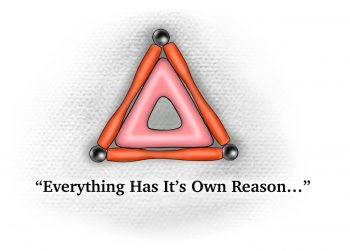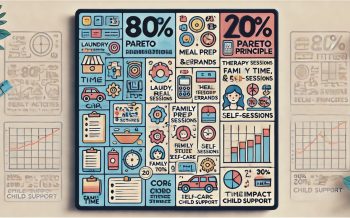In a world where dietary choices abound, the gluten-free diet has gained significant attention. Some may dismiss it as a fleeting trend, but the truth is that the way gluten impacts our bodies today is vastly different from ancient times. As our diet has evolved, so has the composition of gluten, leaving many susceptible to its harmful effects. This article delves into the profound benefits of adopting a gluten-free diet, particularly for special needs children facing conditions like autism, anxiety, and cognitive issues. So, let’s explore how eliminating gluten can be a transformative journey toward a healthier and happier life.

Index
- Understanding the Modern Gluten Quandary
- The Damaging Effects of Gluten
- Harnessing the Power of a Gluten-Free Diet
- The Transition
- Patience and Consistency
- Conclusion

Understanding the Modern Gluten Quandary
In recent decades, advancements in food technology and genetic modifications have altered the composition of gluten, making it more problematic for our bodies to digest.
The gluten found in processed foods today contains higher amounts of proteins, which can trigger adverse reactions in sensitive individuals.
As a result, our bodies suffer from digestive distress, inflammation, and immunesystem dysfunction.
The Damaging Effects of Gluten
Gluten sensitivity can manifest in various ways, affecting both physical and mental health. Research has shown that gluten can damage the delicate lining of the intestines, leading to conditions like celiac disease, irritable bowel syndrome, and other gastrointestinal disorders. Moreover, gluten has been linked to an increased risk of anxiety, depression, and cognitive impairment, exacerbating the struggles of individuals already dealing with these challenges.
Harnessing the Power of a Gluten-Free Diet
Switching to a gluten-free diet offers a beacon of hope for those seeking relief from their health issues. By eliminating gluten, the body can gradually repair the damage caused by its consumption, leading to improved overall well-being. Let’s delve into some of the incredible benefits:
- Improved Digestive Health:
A gluten-free diet helps alleviate gastrointestinal distress by reducing inflammation in the gut and allowing the intestines to heal. This can ease symptoms such as bloating, cramping, and irregular bowel movements. - Weight Management:
Cutting out gluten can be an effective strategy for maintaining a healthy body weight. Gluten-rich foods are often packed with refined carbohydrates, which can lead to weight gain and difficulty shedding excess pounds. Embracing a gluten-free lifestyle encourages the consumption of nutrient-dense, whole foods that promote weight management. - Alleviating Anxiety and Behavior Issues:
Gluten has been linked to increased anxiety levels, particularly in individuals with underlying conditions like autism and cognitive disorders. By adopting a gluten-free diet, many have reported reduced anxiety and improved behavioral control. The underlying scientific explanation suggests that gluten-related inflammation can disrupt neurotransmitter balance, impacting mood and behavior.
The Transition
Not as Daunting as It Seems: Embarking on a gluten-free journey may sound daunting, but the transition is often much easier and quicker than anticipated. Nowadays, there is a wide array of gluten-free products available, ranging from bread and pasta to snacks and desserts. It’s essential to explore and experiment with these alternatives to find delicious substitutes for old favorites. The incredible results achieved through a gluten-free lifestyle make the effort worthwhile.
Patience and Consistency
Key to Success: When beginning a gluten-free diet, it’s crucial to understand that the body needs time to clear out any lingering effects of gluten consumption. The healing process varies for each individual, so patience and consistency are paramount. Stay committed to the diet and observe the positive changes gradually unfolding within your body and mind.
Conclusion
The gluten-free diet is not merely a dietary fad but a powerful tool that can transform lives, particularly for special needs children facing autism, anxiety, and cognitive issues. By eliminating gluten, we can combat the harmful effects of modern gluten composition and pave the way for improved digestive health, weight management, and mental well-being. The scientific evidence supporting the benefits of a gluten-free diet is compelling, offering hope and relief to those in need.
At KidConfetti, we understand that transitioning to a gluten-free diet can be overwhelming. That’s why we’re here to support you every step of the way.
Visit our DietConfetti section, where you’ll find a collection of simple and easy gluten-free recipes to help you embark on your gluten-free journey. From hearty meals to delectable treats, we’ve got you covered.
Remember, the key to success lies in patience and consistency. As you begin your gluten-free diet, be patient with your body as it adjusts and heals. Stick to the diet diligently, and soon you’ll experience the remarkable benefits that await you.
In conclusion, the gluten-free diet offers a life-changing opportunity for individuals with special needs, including those with autism, anxiety, and cognitive issues. By eliminating gluten from our diets, we can mitigate the damaging effects of modern gluten composition. From improved digestive health to weight management and alleviation of anxiety and behavior issues, the benefits are profound.
At KidConfetti, we understand that transitioning to a gluten-free diet can be overwhelming. That’s why we’re here to support you every step of the way. Explore our DietConfetti section, filled with simple and easy gluten-free recipes, to embark on your gluten-free journey and nourish your body, mind, and soul.
Remember, you’re not alone on this journey. KidConfetti is here to provide the guidance and assistance you need to thrive on your gluten-free adventure. Let’s unlock the power of a gluten-free diet together and empower ourselves with optimal health and well-being.





